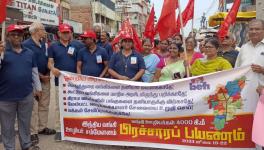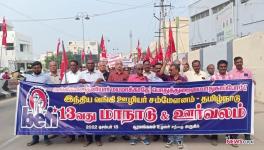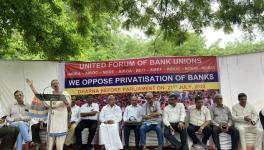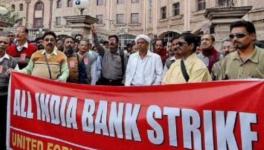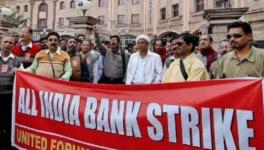BEFI Refuses to Agree on Wage Deal With Bankers, Says ‘Balance Distorted’ Due to Performance Incentives
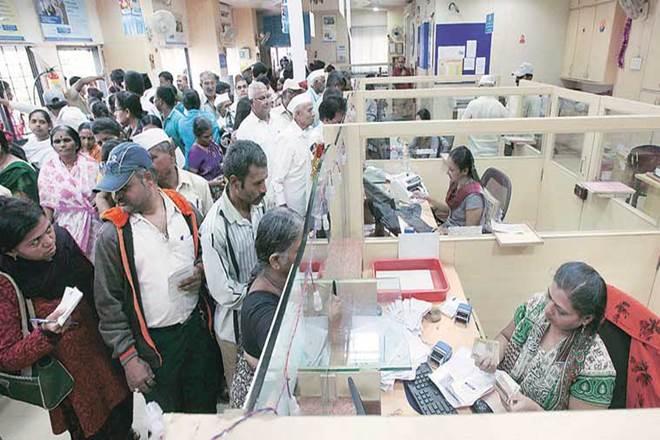
Representational Image. Image Courtesy: The Financial Express
Citing “principled opposition” to the introduction of performance-linked incentives (PLI) as part of the salary structure, the Bank Employees Federation of India (BEFI) abstained from entering into an agreement with the bank management, which was reached by other trade unions as part of much-delayed wage revision talks on Wednesday.
“We apprehended that uniformity of wages and service conditions of the employees and officers across all banks covered under a particular settlement will be disturbed once PLI is introduced,” the federation said in a press release.
BEFI is one of nine constituents of the United Forum of Bank Unions (UFBU), an umbrella body which represents bank employees in the bi-partite wage negotiations which are held with bankers once in every five years.
On Wednesday, as part of the ongoing 11th wage settlement, a memorandum of understanding (MoU) was signed between the Indian Banks’ Association (IBA) – which represents the management of banks – and the other eight associations of workmen and officers.
The current wage revisions for state-owned banks and some private sector banks have been pending since November 2017.
A PLI – a first of its kind – was said to be brought in to “inculcate a sense of competition and also to reward the performance,” said the signed MoU. A PLI would entail incentives based on the annual operating or net profit of the individual lender. It would be payable to all employees “over and above” the normal salary. The incentive includes additional pay of five to 15 days of basic and dearness allowance components of the salary. It is, however, optional for private and foreign banks.
Debasish Basu Chaudhary, general secretary of BEFI, called it a “departure from the past practices”, of having an industry-wide wage pact – that unions in the banking sector have celebrated over the years as “the hallmark of bargaining.”
“Based on the performance of each lender, an employee in the industry will either be able to draw an incentive or not. Further, the percentage of it will differ from bank to bank,” he said.
For banks reporting an annual growth in operating profit of between five to ten percent, its employees will enjoy an additional salary, as incentive, of 5 days; similarly of 10 days for between 10% to 15% and of 15 days if the increase is above 15%. There are no performance incentives for registering less than five percent yearly growth in operating profit.
However, in case of an annual growth in operating profit of more than five percent, if the lender does not record a net profit in the same year, the incentive to an employee is restricted to a maximum of 5 days.
“Net profits are calculated after provisioning other financial ingredients including bad loans and non performing assets on lender’s books. Thus, the total performance of the bank is hugely depended on the policy decisions of the top management and other stakeholders; not just on its employees,” Chaudhary explained.
Thus, linking employees’ incentives to the performance of banks is not “just”, he added.
Moreover, an “in-principle approval” was obtained to increase the family pension to 30% without any ceiling. It is currently at Rs. 9,000. BEFI was pressing for its inclusion in the signed MoU so as to ensure “meaningful discussions” surrounding it in the days to come, Chaudhary told NewsClick.
“We welcome that a wage revision was agreed upon, without any further delay. But the balance has been distorted – putting officers and workmen to disadvantage,” he said. “The current situation pertaining to the COVID-19 pandemic is well considered. However, these agreements are made for five years. We have a social commitment to bank employees, even in the future,” Chaudhary added.
An annual increase of 15% of the wage bill in salary and allowances has been agreed as part of the revision between the bank management and the trade unions. The wage revision will be effective from November 2017.
C.H. Venkatachalam, general secretary of All India Bank Employees Association (AIBEA), “welcomed” the signing of the agreement. Stressing that the PLI is ‘over and above’ the salary component, he called it “an improvement.”
The understanding which covers officers up to scale-VII grade will be finalised into a formal agreement within the next 90 days. Long-pending demands of the bank employees, including a five-day work schedule, stands as such. Venkatachalam added that “whatever (was) possible” out of the demands will be negotiated with the management in the coming days.
Get the latest reports & analysis with people's perspective on Protests, movements & deep analytical videos, discussions of the current affairs in your Telegram app. Subscribe to NewsClick's Telegram channel & get Real-Time updates on stories, as they get published on our website.











